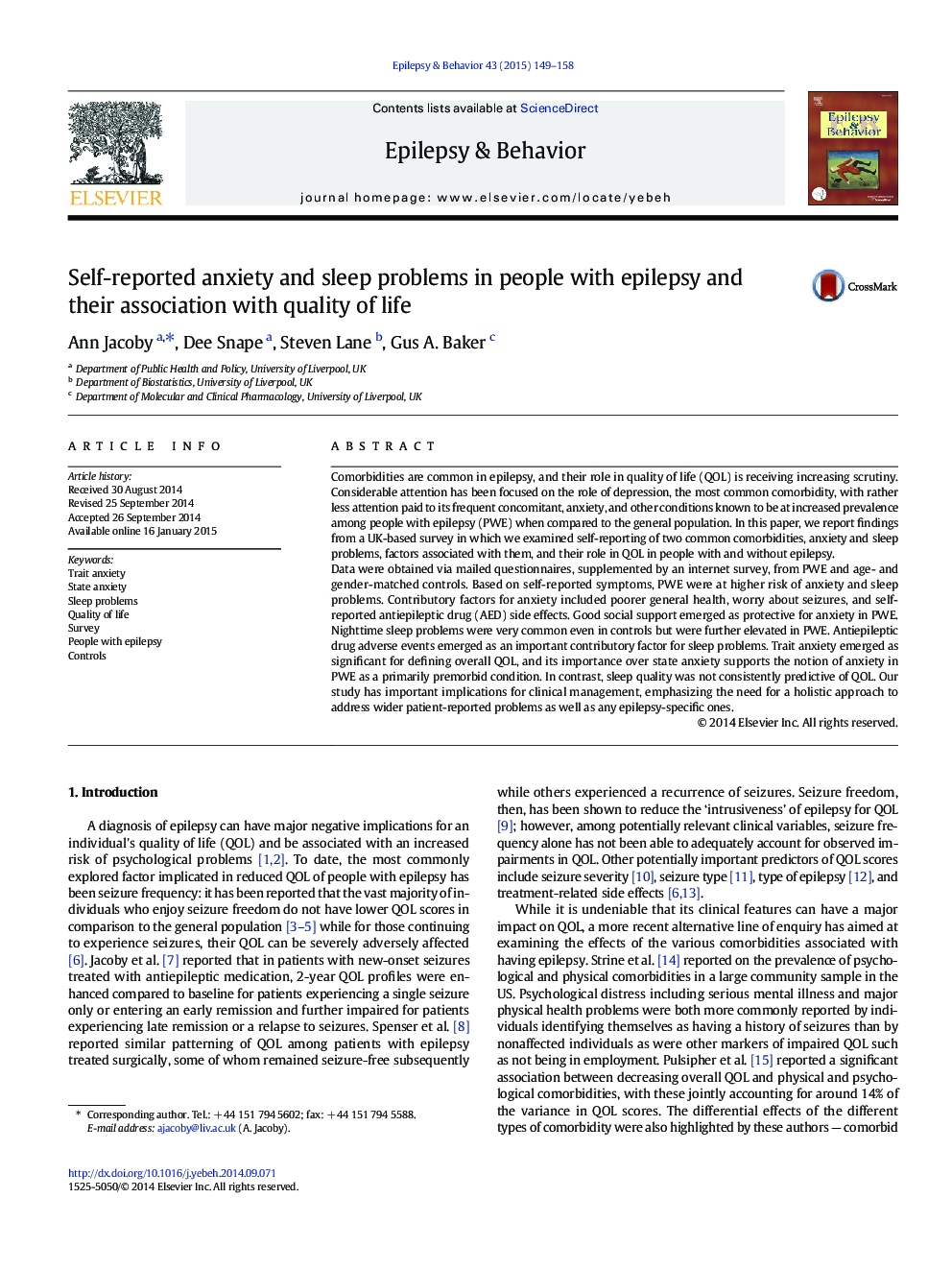| Article ID | Journal | Published Year | Pages | File Type |
|---|---|---|---|---|
| 6011461 | Epilepsy & Behavior | 2015 | 10 Pages |
â¢People with epilepsy are at increased risk of reporting both anxiety and sleep problems when compared to matched controls.â¢Side effects of AEDs may contribute to the risk of anxiety and sleep problems.â¢Good social support offers a protective effect for anxiety.â¢Trait anxiety appears to be a particularly important determinant of quality of life in people with epilepsy.â¢The need for a holistic approach to care is highlighted.
Comorbidities are common in epilepsy, and their role in quality of life (QOL) is receiving increasing scrutiny. Considerable attention has been focused on the role of depression, the most common comorbidity, with rather less attention paid to its frequent concomitant, anxiety, and other conditions known to be at increased prevalence among people with epilepsy (PWE) when compared to the general population. In this paper, we report findings from a UK-based survey in which we examined self-reporting of two common comorbidities, anxiety and sleep problems, factors associated with them, and their role in QOL in people with and without epilepsy.Data were obtained via mailed questionnaires, supplemented by an internet survey, from PWE and age- and gender-matched controls. Based on self-reported symptoms, PWE were at higher risk of anxiety and sleep problems. Contributory factors for anxiety included poorer general health, worry about seizures, and self-reported antiepileptic drug (AED) side effects. Good social support emerged as protective for anxiety in PWE. Nighttime sleep problems were very common even in controls but were further elevated in PWE. Antiepileptic drug adverse events emerged as an important contributory factor for sleep problems. Trait anxiety emerged as significant for defining overall QOL, and its importance over state anxiety supports the notion of anxiety in PWE as a primarily premorbid condition. In contrast, sleep quality was not consistently predictive of QOL. Our study has important implications for clinical management, emphasizing the need for a holistic approach to address wider patient-reported problems as well as any epilepsy-specific ones.
